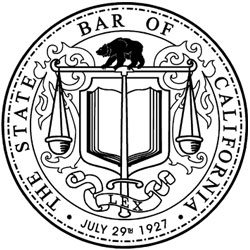How Can A Mother Lose Custody Of Her Child?
by Admin | Child Custody
How can a mother lose custody of her child? After a divorce, parents argue over who has the right and responsibilities to raise their kids legally. Mothers have historically had automatic sole custody grounds just because they are the “mother.” But times have changed and it is now very likely for a mother to gain custody of the child. Fathers have become better prepared to gain sole custody of children for their child custody claim disputes.
Huggins Law Office’s Atty. Shawn R. Huggins agrees that there are situations in which a father can obtain sole custody, as well as vice versa. Child custody issues rest on a number of situations that demand in-depth legal research before starting the trial to have your client’s best defense plan effectively formulated.
In this article, we’ll go through a few types of scenarios in which a mother can lose a custody battle, claims or dispute for her child.
Why Do Mothers Lose Custody?
When parents don’t appear to be in control, they are far more likely to lose custody of their children. Going through a divorce can be a massive source of stress. It’s important to find ways to cope with that stress, but you should be careful about how you behave around your children.

1. Physical abuse – One of the first types of violence that comes to mind when someone mentions domestic violence is physical assault. Since physical abuse is more difficult to cover up than mental abuse and is frequently more blatant, it is a little simpler to spot. When steps of actions are obviously intended to weaken the victim and seize control of the relationship, physical abuse happens. According to research, males are more often than not the ones who commit this type of violence, and when women do, it’s usually to defend themselves from danger towards their ex-partner or husband.
2. Emotional abuse – Though emotional abuse remains tough to attest, it still plays an important role in removing custody rights of a mother. Harassing or belittling a child continually will result in a loss of custody.
Also, children can be emotionally abused by parental alienation. Like telling their children via the phone that the other parent or their father no longer loves them or isn’t their father abusive.
3. Child neglect (NRS 432B.020)– A mother may not be able to raise her child in the best way possible if the child’s welfare is neglected. Losing custody of a child is often justified by lack or failure to provide child support guidance for things like basic necessities and essentials such as food, shelter, clothes, education, and healthcare.
Minor mistakes might be forgiven, but if a mother has actually neglected the child, the custody dispute claim might need to be reevaluated.
4. Alcohol abuse or drug addiction – If a mother’s dependency on the amount of illegal substances, drugs, or alcohol is established, she stands the consequence and basis of the possibility of having her responsibilities visitation and child custody rights terminated. If a mother struggles with her addiction, it calls into question her image and credibility whether she is healthy and able to raise her child. In addition, children of drug users and/or alcoholics are more likely to experience abuse, neglect, and to adopt harmful habits from their parents.
The courts may order a mother to submit to a drug test if they suspect her of abusing drugs or alcohol. She might not have her custody rights terminated immediately if she failed a drug test, but it would probably have an impact on the court’s eventual judgment.
5. Not obeying court orders – Both parents are required by law to abide by custody orders, which are frequently presented in the form of a written agreement and a parenting plan schedule. Refusing to obey court orders may lead to loss of custody or perhaps criminal prosecution, depending on the volume and seriousness of the infractions.
6. Domestic violence – In fact there are many different types of violence against children, including physical, sexual, emotional, and psychological abuse.
Each clause is affected by particular details.
- Physical violence that might result in injuries can include heavy handshakes, beatings, kicks, punches, etc.
- Any type of sexual interaction between the mother and the child constitutes sexual violence.
- Harsh verbal abuse, as well as the repercussions of other types of abuse, are common causes of psychological and emotional abuse.
7. Kidnapping – Parent-child abduction, also known as parental kidnapping (NRS 200.310) or custodial interference, is a crime that takes place when one parent withholds their child from the other with the intention of interfering with the parents’ parental rights.
When this occurs, the mother who abducted a child frequently forfeits custody, particularly if they moved the child beyond international borders or to another nation or if they hurt the child physically or psychologically.
8. Parental Alienation – The practice of “co-parenting” encourages kids in Las Vegas to communicate often and on a regular basis with both their mother and father. When parents have joint access and child custody rights, parents are required by law to abide by the custody agreement.
Parental alienation occurs when mothers intentionally harm their ex-or partner’s parents or physically keep the children.
Refusing to work with the other parent to ensure their needs are met
Of course, these things can also cause a father to lose custody. If the attorneys working for your former spouse can provide evidence of these behaviors to the judge overseeing your case, it won’t just impact your chances of being awarded primary custody. You may also be less likely to be awarded joint custody.
What The Court Considers When Deciding What Is In A Child’s Best Interest
In Las Vegas, the courts prefer that parents come up with a parenting plan on their own. If parents aren’t able to reach an agreement, or if they create a plan that isn’t in a child’s best interest, the Las Vegas Family Court will issue a custody order. Unless there is evidence to the contrary, courses consider that joint physical and legal custody is best for the child. In Las Vegas courts, it’s very likely that courts will recommend joint custody.
However, if one parent requests that they receive primary physical and/or sole physical custody, there are a number of factors looked at by the court. With that said, the courts cannot take gender into consideration when making a decision. Under laws in the state of Nevada, there are best interest factors that the courts are required to consider under the Nevada Revised Statutes (NRS), such as:
Preference of the Child
If a child expresses a desire to live with a certain parent, those wishes will be taken into consideration. However, the child must old enough to have an informed opinion on this subject. Typically, a court won’t take these requests into consideration unless a child is over the age of 12. The child’s wishes also are taken into consideration in light of “why” the child wants to live with the other parent. If the child wants to live with the other parent because he or she can stay up all night, have girlfriends spend the night, not be forced to do homework, allowed to drink, etc., it still might not be in the best interests of the child to allow it, so courts take all of this into consideration in making its decision.
Parental Relationships
It’s the belief of the court that a child is better off if they are able to see both parents on a regular basis. Because of this, the courts will consider if one of a child’s parents will put in more effort to ensure that the child has a positive relationship and regular contact with their other parents. If a parent isn’t willing to work with their former spouse, they may not be granted joint custody.
The Well-Being Of The Parents
Both the physical and mental health will be taken into consideration by the courts. If a parent has a health issue that will keep them from taking care of their children, the courts may be less likely to grant them custody. Courts will take suicide attempts and severe mental illness into consideration as well in granting custody decisions in Las Vegas.
The Relationship Between The Parents And Their Children
Courts will look at the current relationship between parents and their children. If a mother is a child’s primary caretaker, this will be considered. However, the courts will be primarily be focused on whether or not the relationship between the parent and their children is healthy. They won’t be looking at maternal instincts.

Siblings
Courts want to keep a child’s siblings together if possible. For example, if a 16-year-old child has expressed a preference to live with her mother, the courts may consider this when deciding who should be awarded custody of the child’s 10-year-old siblings. Judges will also take relationships with step-siblings into consideration.
Parental Relationships
It’s the belief of the court that a child is better off if they are able to see both parents on a regular basis. Because of this, the courts will consider if one of a child’s parents will put in more effort to ensure that the child’s development has a positive relationship and regular contact with their other parents. Inability to change or work in front of their former spouse, they may not be granted a joint custody claim.
Domestic Violence
If a parent has a history of allegations of child abuse violations or domestic violence against another person of the household, the courts will take this into account when making a decision. In fact, this may be the factor that holds the most weight in the courts.
Kidnapping
If a parent has kidnapped a child, the courts will obviously frown on this behavior. With that said, a parent leaving the home with their children may not be perceived as abduction by the courts. However, if a parent crosses state lines with their children, and they refuse to tell information to the other parent where the children are, this could be seen as a child abduction.
The “Best Interest” statute states that courts must explain the reasoning behind their decision if they refuse to grant joint legal or physical custody to a parent that asked for it. The law also states that courts need to explain their findings when it comes to the factors that were taken into consideration. A parent or co-parent can appeal a decision if the courts award a parent primary physical custody conduct without properly establishing findings.
What Types of Child Custody Exist?
Legal Custody
Legal custody entails having control over the child’s upbringing until the child is of legal age. The parent who has custody is allowed to decide long-term options for the child’s welfare in all crucial areas.
Physical Custody
After the divorce process is complete, the children will spend time living with each parent. This is referred to as physical custody. Joint physical custody is the term used when both parents spend about equal amounts of time with the children. A sole legal custody agreement is often described as one where one parent spends the majority of time with their child and the other is merely a regular visitor.
Physical custody is awarded to the parent who is more capable of caring for the child on a daily basis.
When child care is shared according to a formal agreement, the court will choose which parent will have physical custody of the child. Hence, whoever is granted physical possession will have the right to raise the child.
The decision-making authority over a child’s upbringing might still be shared equally by both parents.
Sole custody
A situation in which one guardian or parent is given both physical and legal custody role of the child is referred to as sole custody. The term “custodial parent” now refers to this parent or guardian.
The custodial parent has the sole legal custody role of the child, which means he or she is accountable for the child’s needs in all parts of life, including child’s future.

Joint Custody
Joint custody gives both parents equal access to the kid in making decisions about their care, whether that access is physical or legal.
Equal parental rights are possible when it comes to parenting the child. They can decide on the child’s living arrangements, which entails allocating time for each of them to be with the youngster.
Different Kinds of Joint Custody
Giving both parents equal legal custody treatment, but not physical, rights is another type of joint custody. For instance, the father may be granted visitation rights if the mother has primary physical custody for the child. However, the father and mother share responsibilities for carrying out important choices that will affect the child’s life.
The father cannot influence the child’s life when it comes to important matters unless the mother is granted legal custody of the child. However, if both of them have physical custody on the child, they can choose which parent the child resides with at any given time without problems.
Split Custody
Split custody refers to a decision made in custody claim disputes involving many children in the same household. Siblings are split between the parents, yet each child still gets the ability to spend time and do activities with each parent separately.
Even while family courts want siblings to stay together in one shelter after their parents divorce, there are times when a divided custody arrangement is essential.
The most frequent exception to the rule that justifies shared custody is for logistical considerations, particularly when it comes to the child’s important personal needs such as food, clothing, school education and other responsibilities or purposes. In addition to this, additional underlying reasons can still have effect.
For instance, child custody lawyers in Las Vegas are used as experts for protracted legal disputes about child custody claims that may be just as acrimonious as those over spousal maintenance.
How to Make Your Case Stronger Possession of a Child
If you are a mother who wishes to retain custody rights for your child, you should definitely avoid the methods indicated above. It does not support the position that your ex partner is trying to find a way to gain custody of your child. Personal prejudice and other factors may all support your arguments while supporting his.
Therefore, it’s also useful to understand how a parent might make his argument against you less compelling. These consist of:
- Complicated complaint procedure. Your ex-partner is more likely to lose credibility the more times he complains about you to the police or requests an investigation. Few judges may think or concern that there is abuse or neglect happening in a home that has repeatedly demonstrated its innocence.
- Decision-making influenced by feelings. Do you still have a bitter or irate ex-partner? The court upholds the mother’s right to a child custody case if the father files a complaint against her for no other reason than that he is experiencing these emotions. As a result, the father’s image, reliability and character would be called into question if he tried to file once again in the future. A judge can consider your ex-partner to be an unfit parent if he threatens or shouts at you.
- He doesn’t have any proof of his assertions. If your ex-partner doesn’t have any list of supporting evidence for his accusations against you, you won’t often lose your parenting rights. The court will not be bias towards anyone. It will not heed his request until he makes all necessary records or list of information available and submits any police statements, report or other court papers that would support his assertions. Additionally, he needs to submit the required court order papers; otherwise, the risk or consequence will be at a loss in his case. Your lawyer can make sure he’s following the rules and assist in spotting any difference, errors, mistakes he makes, which will ultimately be the best reasons that work to your advantage.
Conclusion
There is no predetermined standard for determining whether a judge will grant a mother custody for her child or children. If the mother mistreat or neglects her child, drives an separation action between them and their father, or anything that endangers their life, the father has the right to request a modification of the existing custody arrangement or to pursue a custody claim for their child.
If you don’t do these things, you are in the right track and you won’t lose legal possession threats of your child. Remember that the father must prove his case if he decides to start a complaint against you. Maintaining parental custody rights is frequently as easy as giving your child a secure, safety, healthy environment and your undivided attention.
Don’t let your kids out of your sight
Regardless of whether you have been given custody of your child, the court’s judgment in your favor is not necessarily final. Therefore, it is crucial that you never make the same mistake that a mother who has lost custody over her child. Even then, nothing will stop a vindictive, obstinate ex or partner from trying or finding all forms of ways to take custody of your child.
You are currently on the side of the law, though, changes may apply if you’ve been doing your hardest to be a decent mother and parent for your child. Then you haven’t engaged in any kind of substance abuse, party drugs, crimes, any kind of abuse or neglect.
You must be prepared in case the father does assert his rights and file a lawsuit claim.
Because of this, you must be cautious about selecting a family lawyer or attorney that could build an incredible attorney-client relationship. The lawyer must be expert and, with experience of custody cases like yours, is sympathetic to your circumstances, and can offer assistance to lessen your burden in filling out paperwork, information and advice throughout your claim.
If you are in need of an expert and experienced child custody lawyer in Las Vegas and other custody disputes claim services, then give us a call at (702) 387-4014. We give free consultation, so you have nothing to lose!
For more information on how https://www.hugginslawoffice.com/ can help you on your custody claim, please contact us at (702) 387-4014, or visit us here:
8683 W Sahara Ave #180, Las Vegas, NV 89117, United States




